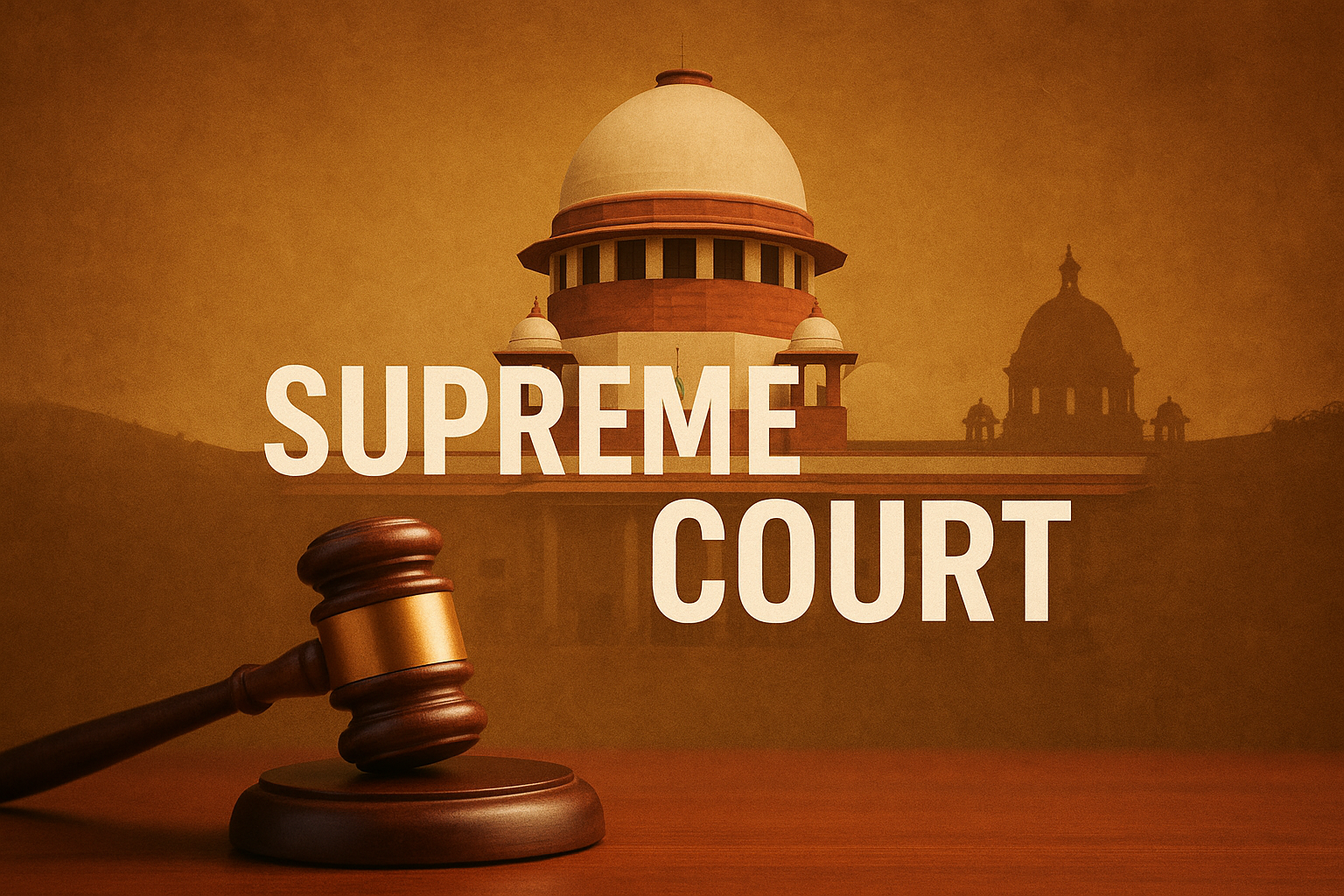The Supreme Court of India recently rebuked AIADMK Member of Parliament CV Shanmugam for rushing to court with a plea against the Tamil Nadu government’s welfare initiative “Ungaludan Stalin” before the Election Commission of India (ECI) could act on his complaint.
A three-judge Bench led by Chief Justice of India BR Gavai, along with Justices K Vinod Chandran and NV Anjaria, was hearing appeals filed by the Dravida Munnetra Kazhagam (DMK) and the State of Tamil Nadu challenging a Madras High Court order. The High Court had restrained the State from using Chief Minister MK Stalin’s name in the scheme, pending adjudication.
Court Questions Haste in Moving High Court
The Bench noted that Shanmugam had already approached the ECI under the Election Symbols (Reservation and Allotment) Order, 1968, but filed a writ petition in the Madras High Court just three days later, alleging inaction by the poll body.
The Supreme Court strongly disapproved of this conduct, remarking:
“Not giving even a breathing period to the ECI and making such statements with regard to the Commission’s failure to act… the writ petitioner, in our view, has also tried to castigate the ECI.”
The Court said litigants must give the Commission reasonable time to examine complaints before accusing it of inaction or seeking judicial intervention.
Political Battles Belong to the People, Not Courts
The apex court further cautioned that undermining the credibility of democratic institutions like the ECI weakens public faith in governance. It reiterated that political rivalries should be settled through the electoral process, not by weaponizing the courts.
“Time and again we have observed that political battles should be fought before the electorate. Courts should not be used to settle the political scores between rival political parties,” the Bench stressed.
Selective Challenge Raises Doubts
The Court also highlighted the selective nature of Shanmugam’s petition. The Tamil Nadu government produced evidence of 45 welfare schemes launched over the years, each bearing the names of different political leaders. The Bench questioned why the MP chose to single out only one scheme tied to MK Stalin.
“When such schemes are floated in the name of leaders of all political parties, we do not appreciate the anxiety of the writ petitioner to choose only one political party and one political leader,” the judgment stated.
The Court observed that if Shanmugam was genuinely concerned about misuse of public funds for political branding, he should have challenged all such schemes across India instead of selectively targeting one party.
Conclusion
By dismissing the approach taken by CV Shanmugam, the Supreme Court reinforced the principle that political disputes must be resolved in the electoral arena. The ruling also reaffirmed the Election Commission’s role as a constitutional authority that deserves time and space to act independently before courts are approached.





